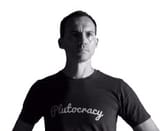GAME ART: TOTAL REFUSAL'S HOW TO DISAPPEAR. DESERTING BATTLEFIELD (2020)
A game video essay on the nature of war - both "real", that is, unmediated, and its remediation through ludic means - How to Disappear. Deserting Battlefield is a profound, moving, and enlightening meditation on topics ranging from the weaponization of nationalism to the ideology of physical exercising in military contexts.
The artists, who previously visited a virtual New York to illustrate the neoliberal principles informing the logic of urban spaces in digital games (see Operation Jane Walk), appropriated Battlefield V to highlight the contradictions of "playing war". Embracing the role of the spoilsport, the collective Total Refusal - Digital Disarmament Movement examines the practice of deserting in online gaming situations. The approach is not necessarily new - consider Joseph DeLappe's dead-in-iraq (2006-2011) project which turned American's Army on its head and elevated the artist to the role of the activist, or the creative deserter (something that was subsequently parodied by Eva and Franco Mattes with Freedom, 2010). However, in How to Disappear, the anti-war message is simultaneously more explicit and more subdued. Total Refusal's machinima is a collection of in-game performances in which several characters refuse to play. Instead, the kill themselves by jumping off cliffs (an homage to Brody Condon's seminal Suicide Solution, perhaps) or targeting a standing pole with their machine guns, surprised by the resilience of the pennant.
In DeLappe's performance, the artist/player refused to play according to the rules. Instead, he entered the online US Army recruiting game in order to manually type the name, age, service branch and date of death of each service person who perished in the Iraq war. As Delappe wrote, dead-in-iraq "is essentially a fleeting, online memorial to those military personnel who have been killed in this ongoing conflict. My actions are also intended as a cautionary gesture." How to Disappear, on the other hand, is more open to interpretation: the narrator provides contextual information, but no definite didactic takeaways or explicit warnings about the implications of militarization. What it does, unequivocally and convincingly, is demonstrating that the bridge separating "real life" and the simulation is much shorter than one may think.
The artists provide remarkable commentary upon the most puzzling aspects of the game, e.g. the aforementioned, inexplicable indestructibility of flags - which are imbued of that sacred aura that often justifies the most vile acts of "patriotism". In other words, these are not bugs but features: ideology mostly is hegemonic. Implicit, not explicit. How to Disappear is metagame walkthrough, a Let's play sui generis that focuses on the game mechanics to bring to surface the embedded ideologies, thus completely disrupting the banal excuse that close textual analysis of games is unwarranted and unnecessary because, well, "it's just a game", the abused "common sense" approach to gaming that validates its values and messages a priori while simultaneously dismissing them as harmless. In all cases the uncanny nature of the game is highlighted not with incredible stunts or masterful maneuvers ("high performance play", as Henry Lowood put it), but by simply showing the characters' aspect and basic moves, like pointing a gun or crawling on the ground. The banality of such actions, emphasized by a fixed, lingering camera, is deeply unnerving.
Total Refusal is Robin Klengel, Leonhard Müllner, and Michael Stumpf. In their practice, they critically analyze and appropriate digital game spaces and put them to new use. Moving within games but ignoring the intended gameplay, Total Refusal allocates these resources to new activities and narratives, in order to create “public” spaces imbued with critical, even subversive potential.
Leonhard Müllner works as an artist in the public and digital space and is currently writing his doctoral thesis at the Linz Art University at the Institute for Art and Cultural Studies.
Robin Klengel works in Graz and Vienna as an interdisciplinary artist, illustrator, cultural anthropologist and vice president of the Forum Stadtpark.
Michael Stumpf studied philosophy at the University of Vienna. He works as an artist, designer and cultural theorist.
LINKRelated